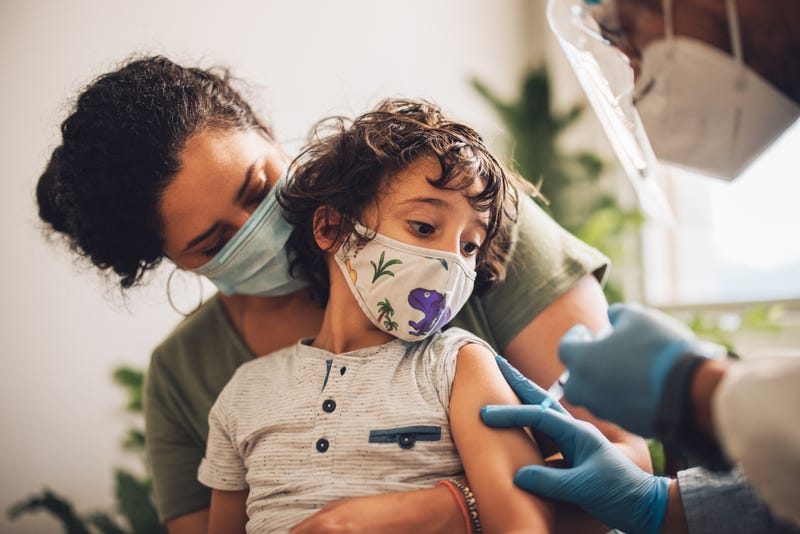
Now that a COVID-19 vaccine is available for children over the age of five, many parents are relieved to be able to get their kids vaccinated. Although COVID-19 might not affect children the same way it affects older adults, illness can still manifest itself in harmful ways.
Health experts are still learning what COVID-19 symptoms look like in children, and what the possible long-term side-effects of the virus might be in younger people.

Most children that come into the emergency room due to COVID-19 suffer from a multi-system inflammatory syndrome, according to Dr. Nicole Gerber, a pediatric emergency medicine expert at Weill Cornell Medicine.
The condition is typically seen a "couple of weeks after COVID-19 infection," she told KCBS Radio’s Holly Quan and Dan Mitchinson on KCBS Radio’s Ask an Expert on Friday. This inflammatory syndrome can lead to heart disease.
Kids can also come in with symptoms related to the virus weeks, to months, after the initial infection.
But the rate of long COVID-19 symptoms showing up in young children is still unknown, "But it’s definitely something we are seeing in some children," she said.
Research is still ongoing. Treatment depends entirely on the individual case, some will have certain symptoms lasting weeks or months, while others will not. "We’re still learning how to treat it," said Gerber.
The symptoms are wide-ranging – including difficulty breathing, fatigue, inability to function in daily activities. "It can be really debilitating for adults and for children," she said. Most of the time when children are sick, they are still able to go out and play and go to school, which isn’t really happening with COVID-19 symptoms.
It’s still too early to tell how much the vaccine will help mitigate these symptoms in breakthrough cases for 5-11-year-olds, but it’s likely to help.
But as more and more kids in that age group get vaccinated, the virus will become something that gets "incorporated into our background risk tolerance," said Gerber. "And becomes like any other viral illness."
While there are some side effects to the vaccine, most are similar to what has been reported in adults, especially pain around the injection site. Although some data has shown rare cases of myocarditis, inflammation of the heart, in teenage boys, these cases are few and far between.
Children are much less likely to develop myocarditis from the vaccine than they are to develop the inflammatory syndrome as a result of a COVID-19 infection, said Gerber.
And the vaccine will help save these young lives. In the more than a year and a half since the pandemic started, there have been 600 pediatric deaths and 50 deaths from this inflammatory syndrome, said Gerber.
"I think the risk-benefit ratio for vaccinating children is overwhelmingly in favor of vaccination," she said.
LISTEN on the Audacy App
Sign Up and Follow Audacy
Facebook | Twitter | Instagram
